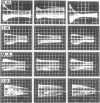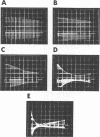Abstract
Changes in amplitude of the evoked muscle action potential (MAP) have been observed in four patients with myotonia congenita and two with dystrophia myotonica. A fade in the response occurred in every case with stimulus frequencies of 10 per second or less, provided that the muscle was in a rested state and that long enough stimulus trains were used. Intramuscular stimulation and recording techniques show that the myotonic muscle fibre is the site of this defect. The MAP fade is thought to represent the transient weakness from which such patients may suffer, particularly after rest. Since neither this weakness nor the fade was related to the severity of the myotonia, nor were they significantly influenced by cooling or hydantoins, they may well be due to a separate defect in the myotonic muscle from that which causes the hyperexcitability of the fibre membrane.
Full text
PDF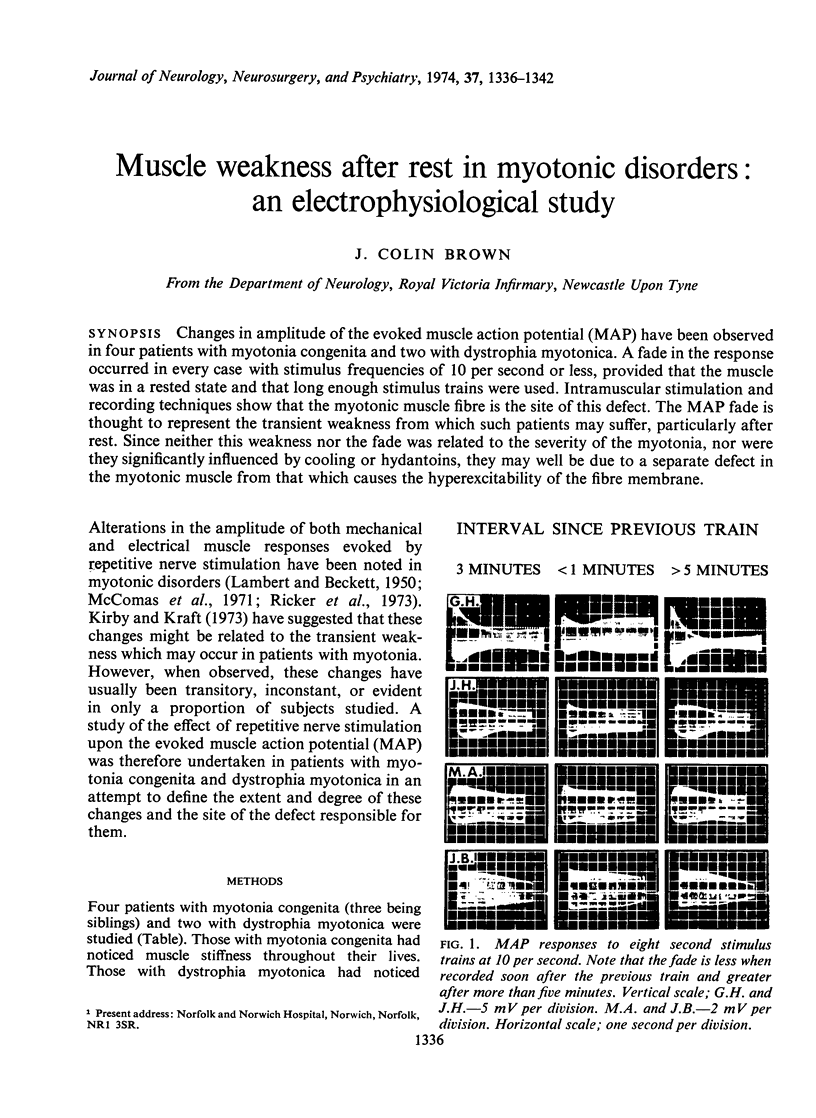
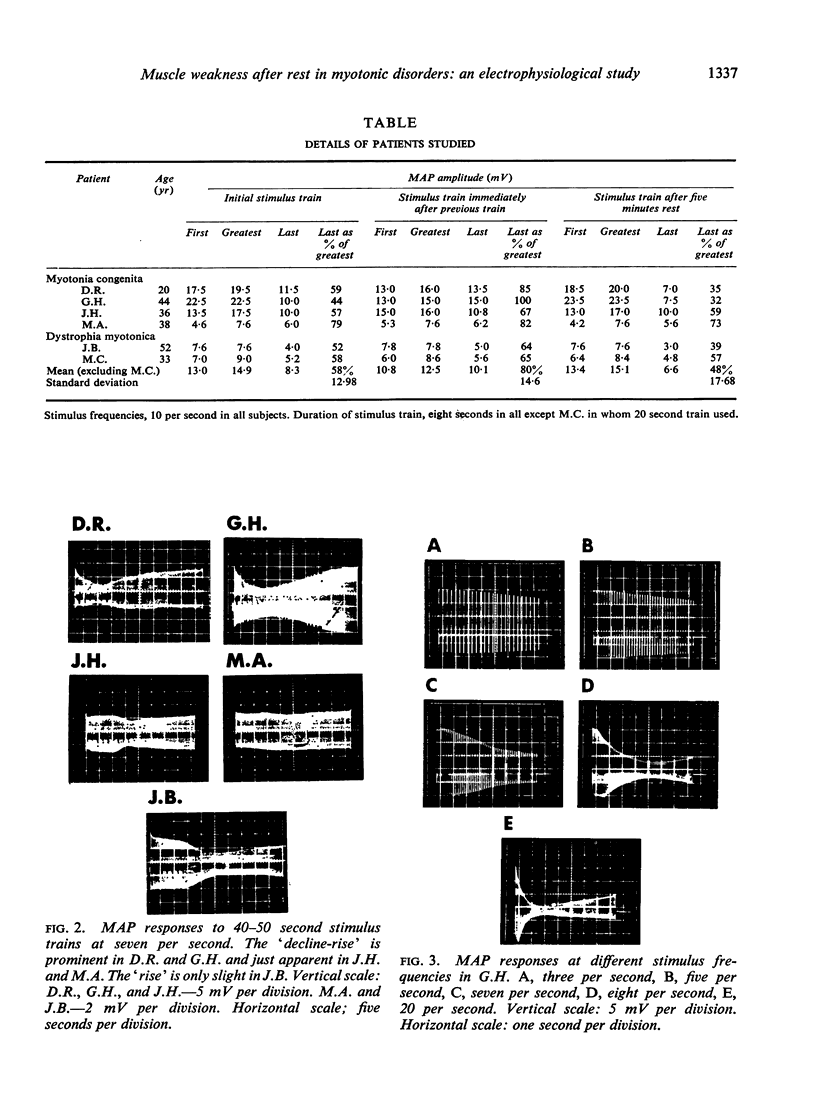
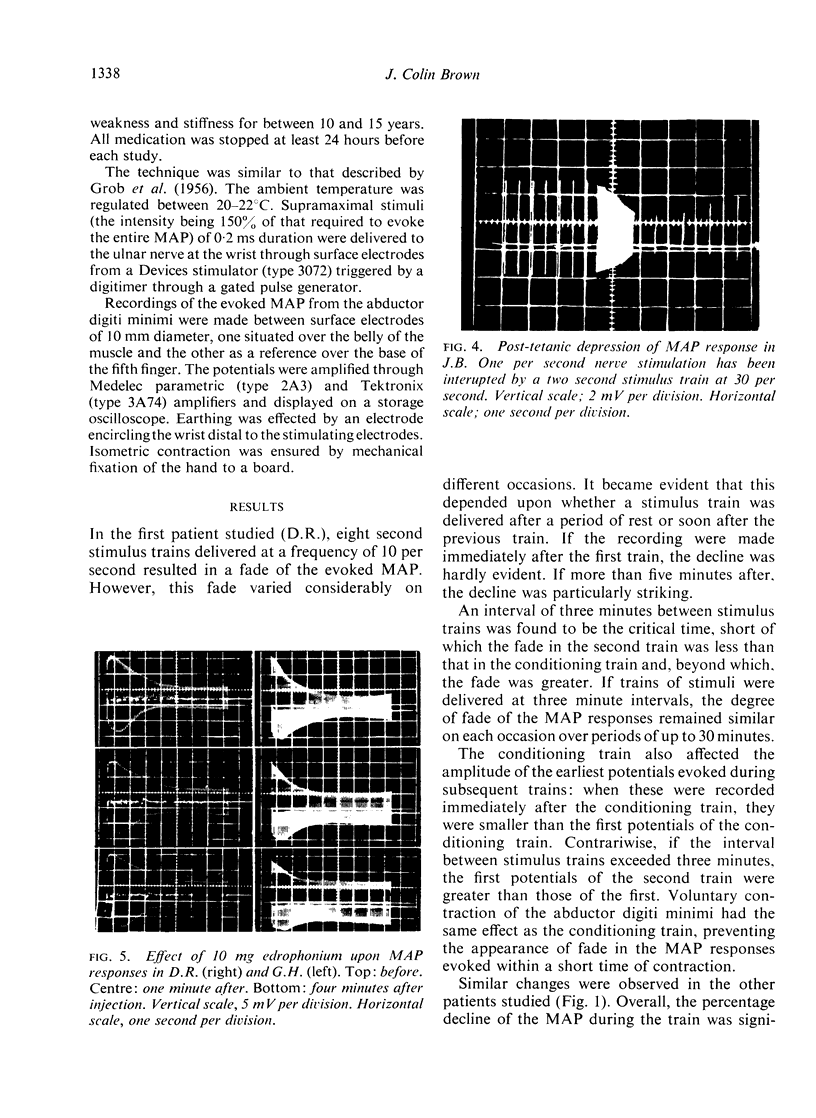
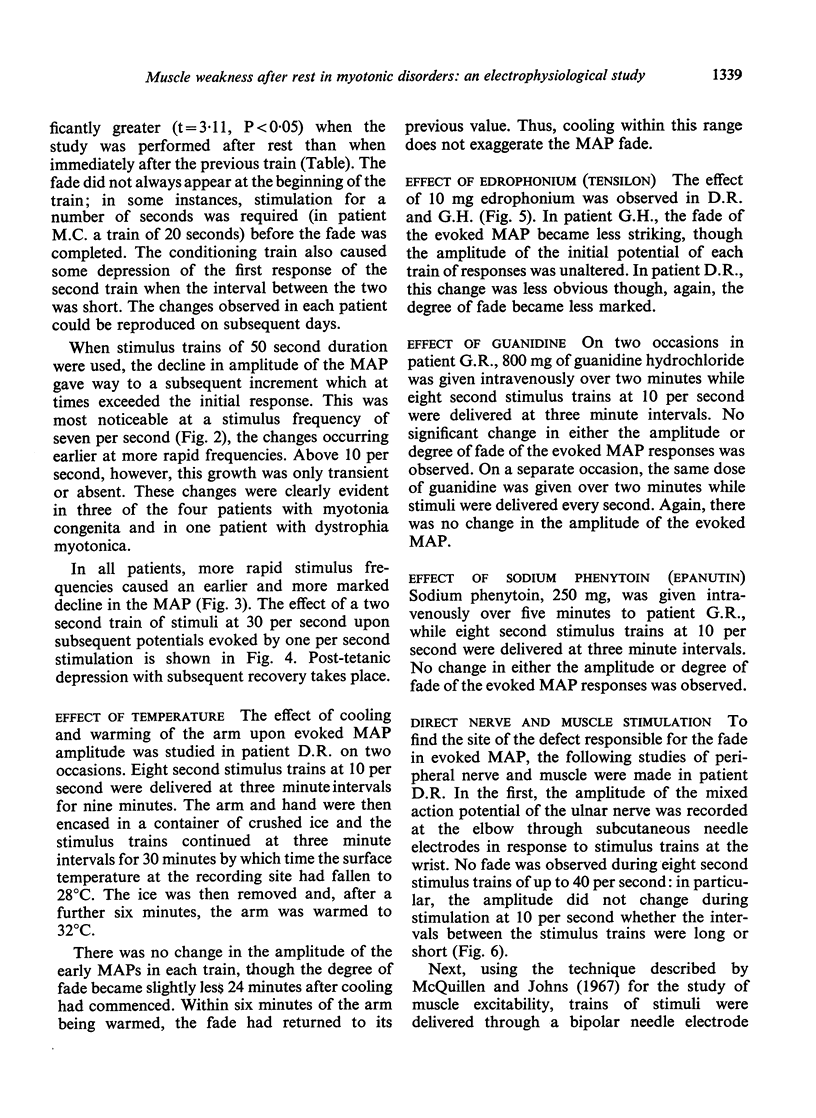
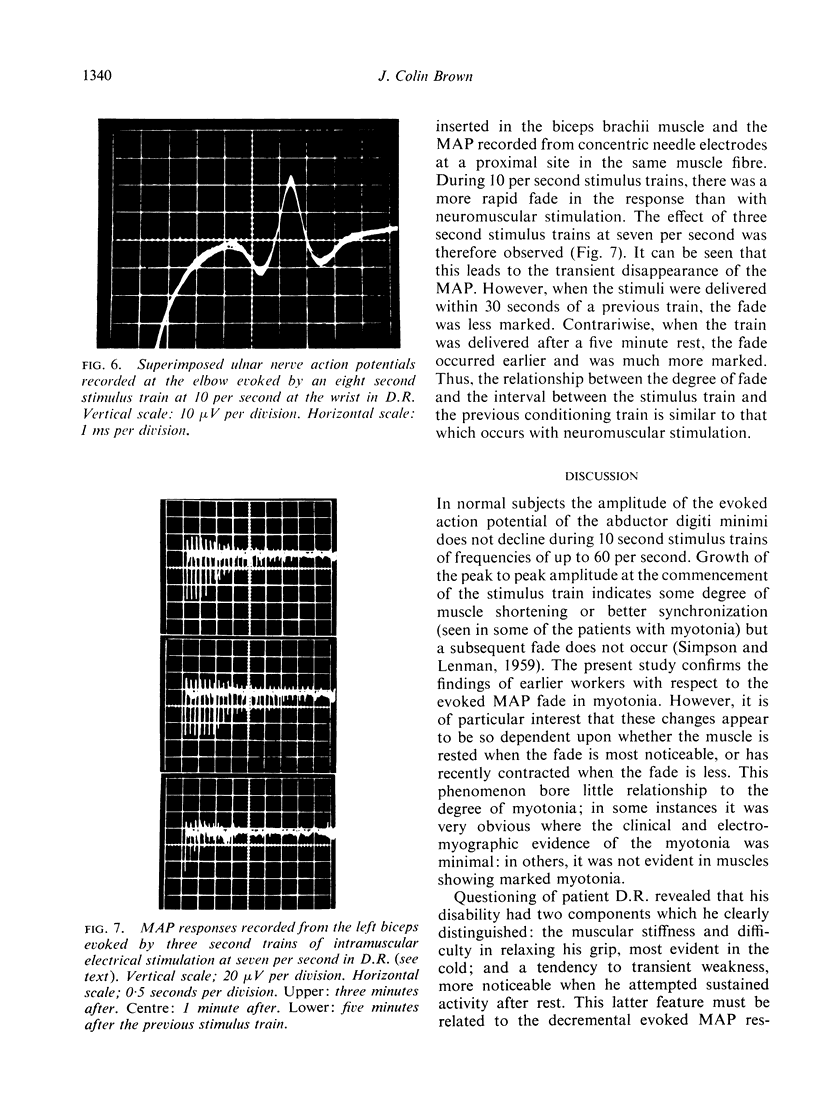
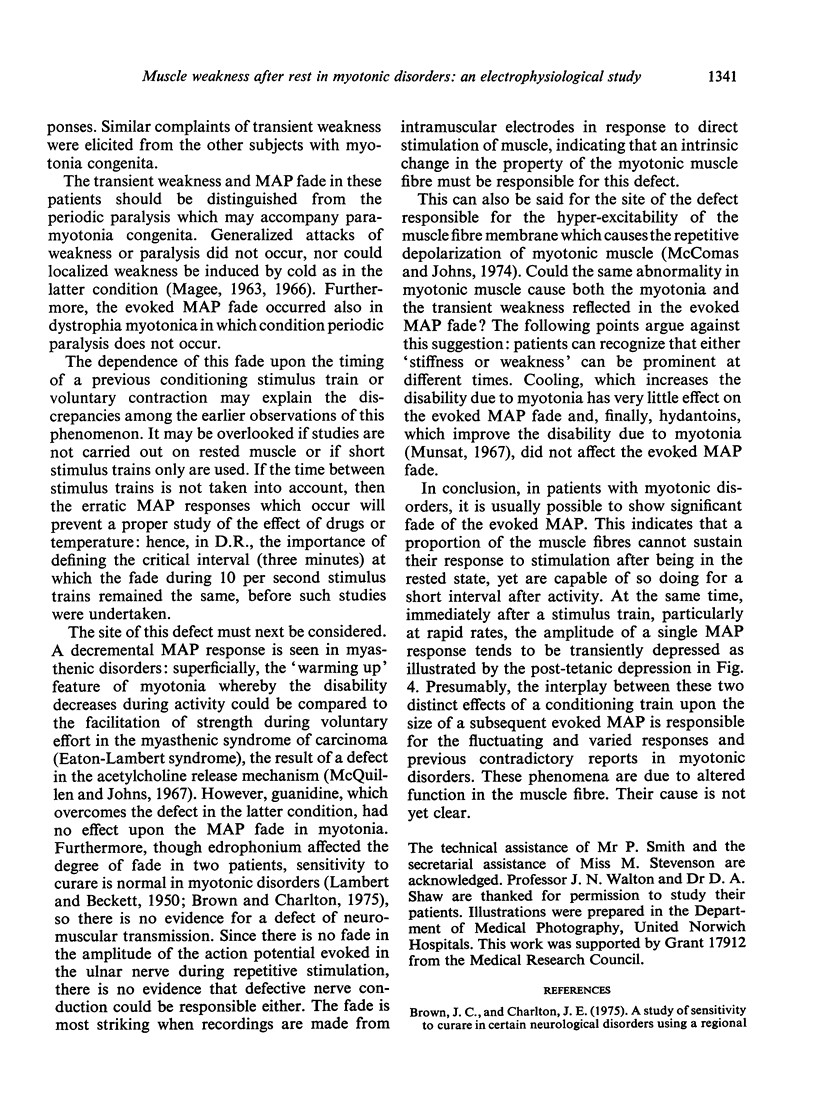
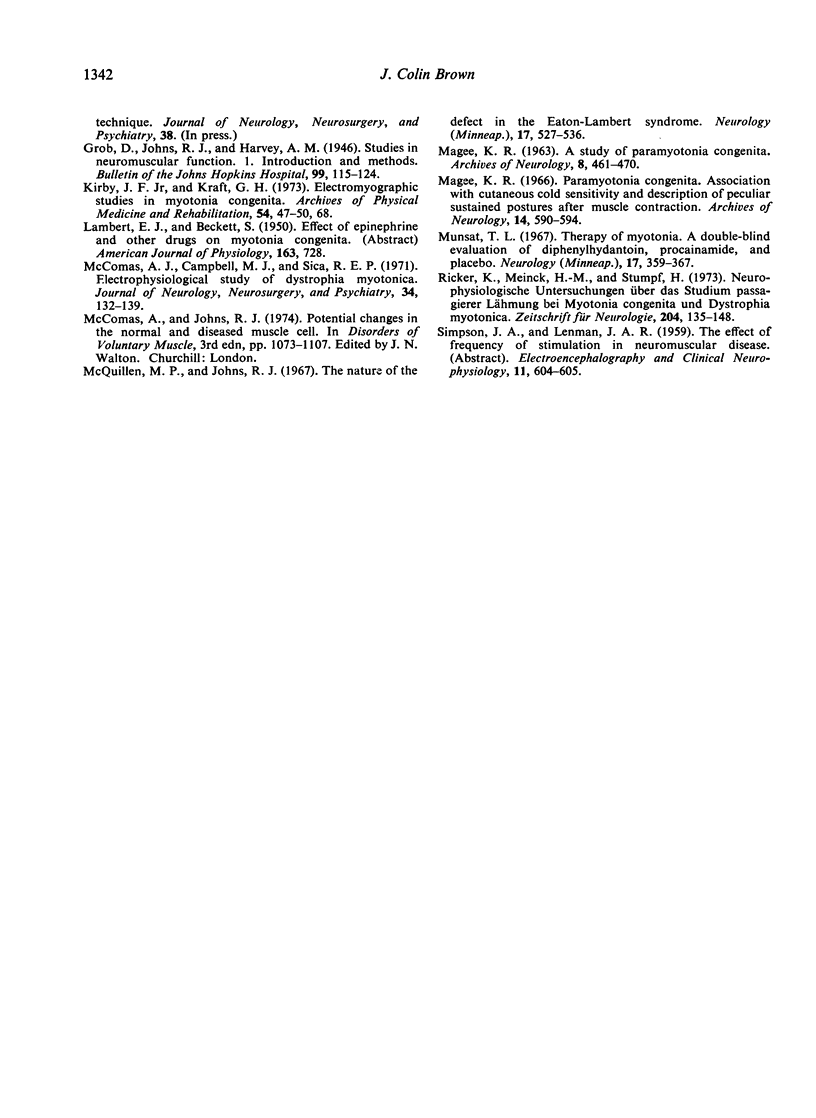
Images in this article
Selected References
These references are in PubMed. This may not be the complete list of references from this article.
- GROB D., HARVEY A. M., JOHNS R. J. Studies in neuromuscular function. I. Introduction and methods. Bull Johns Hopkins Hosp. 1956 Sep;99(3):115–124. [PubMed] [Google Scholar]
- Magee K. R. Paramyotonia congenita. Association with cutaneous cold sensitivity and description of peculiar sustained postures after muscle contraction. Arch Neurol. 1966 Jun;14(6):590–594. doi: 10.1001/archneur.1966.00470120022003. [DOI] [PubMed] [Google Scholar]
- McComas A. J., Campbell M. J., Sica R. E. Electrophysiological study of dystrophia myotonica. J Neurol Neurosurg Psychiatry. 1971 Apr;34(2):132–139. [PMC free article] [PubMed] [Google Scholar]
- McQuillen M. P., Johns R. J. The nature of the defect in the Eaton-Lambert syndrome. Neurology. 1967 Jun;17(6):527–536. doi: 10.1212/wnl.17.6.527. [DOI] [PubMed] [Google Scholar]
- Munsat T. L. Therapy of myotonia. A double-blind evaluation of diphenylhydantoin, procainamide, and placebo. Neurology. 1967 Apr;17(4):359–367. doi: 10.1212/wnl.17.4.359. [DOI] [PubMed] [Google Scholar]
- Ricker K., Meinch H. M., Stumpf H. Neurophysiologische Untersuchungen über das Stadium passagerer Lähmung bei Myotonia congenita und Dystrophia myotonica. Z Neurol. 1973 Apr 2;204(2):135–148. [PubMed] [Google Scholar]



